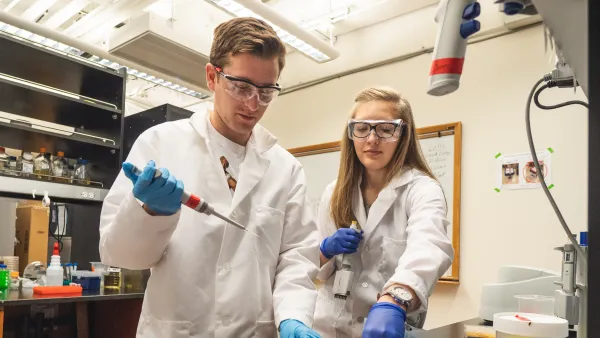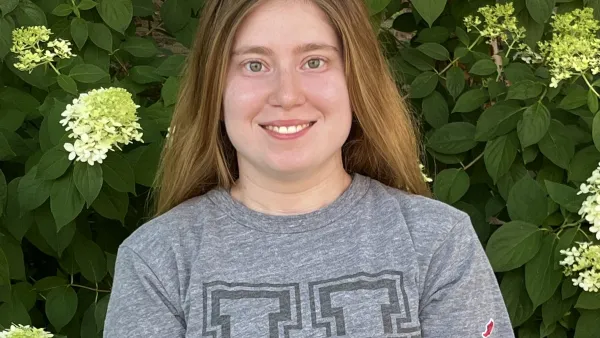Researchers in the laboratory of Meredith Jackrel, assistant professor of chemistry in Arts & Sciences, discovered that proteins implicated in Ewing’s sarcoma and liposarcoma can be dissolved by protein disaggregases, a finding that could be used to combat disease. The new research is published in the Journal of Biological Chemistry.
Jackrel and the researchers in her lab are interested in understanding how protein misfolding occurs, how it can lead to disease, and how protein-remodeling factors can prevent or even reverse misfolding.
Two of the proteins they had been studying because of their involvement in amyotrophic lateral sclerosis (ALS, or Lou Gehrig’s disease) are also implicated in Ewing’s sarcoma, the second most common pediatric bone cancer, as well as liposarcoma. The same portion of the protein that drives misfolding in ALS can also become improperly translocated to transcription factors at the chromosomal level. These translocated proteins do not function properly, which may drive sarcoma.
Jackrel and members of her team, including Jeremy Ryan and Macy Sprunger (pictured above), both graduate students in chemistry and co-authors of the new paper, developed a new yeast model system that they used to determine that protein disaggregases like the ones that can dissolve proteins that accumulate in ALS can also dissolve sarcoma proteins.
“We find that many of the features noted in sarcoma patient cells are recapitulated in our yeast model system, and yeast has the advantage of being highly genetically tractable,” Jackrel said. “We anticipate that this yeast model system could be a viable platform for screening for small molecule or genetic modifiers of the toxicity of these translocations.”
Read more: Engineered protein disaggregases mitigate toxicity of aberrant prion-like fusion proteins underlying sarcoma. The Journal of Biological Chemistry, Vol. 294, Issue 29, 11286-11296, July 19, 2019.




